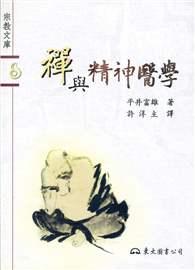Before William Shakespeare wrote world-famous plays on the themes of power and political turmoil, the Shakespeare family of Stratford-upon-Avon and their neighbors and friends were plagued by false accusations and feuds with the government DL conflicts that shaped Shakespeare’s sceptical understanding of the realities of power. This ground-breaking study of the world of the young William Shakespeare in Stratford and Warwickshire discusses many recent archival discoveries to consider three linked families, the Shakespeares, the Dudleys, and the Ardens, and their battles over regional power and government corruption. Robert Dudley, earl of Leicester, and Ambrose Dudley, earl of Warwick, used politics, the law, history, and lineage to establish their authority in Warwickshire and Stratford, challenging political and social structures and collective memory in the region. The resistance of Edward Arden DL often claimed as kin to Mary Arden, Shakespeare’s mother DL and his friends and family culminated in his execution on false treason charges in 1583. By then the Shakespeare family also had direct experience with the London government’s power: in 1569, Exchequer informers, backed by influential politicians at Court, accused John Shakespeare, William’s father, of illegal wool- dealing and usury. Despite previous claims that John had resolved these charges by 1572, the book’s new sources show the Exchequer’s continuing demands forced his withdrawal from Stratford politics by 1577, and undermined his business career in the early 1580s, when young William first gained an understanding of his father’s troubles. At the same time, Edward Arden’s condemnation by the Elizabethan regime proved problematic for the Shakespeares’ friends and neighbours, the Quineys, who were accused of maintaining financial connections to the traitorous Ardens DL though Stratford people were convinced of their innocence. This complicated community directly impacted Shakespeare’s own perspective on local and national politics and social structures, connecting his early experiences in Stratford and Warwickshire with many of the themes later found in his plays.
| FindBook |
有 1 項符合
Shakespeare Before Shakespeare: Stratford-Upon-Avon, Warwickshire, and the Elizabethan State的圖書 |
 |
Shakespeare Before Shakespeare: Stratford-Upon-Avon, Warwickshire, and the Elizabethan State 作者:Parry 出版社:Oxford University Press, USA 出版日期:2020-10-06 語言:英文 規格:精裝 / 240頁 / 16.26 x 23.62 x 2.03 cm / 普通級/ 初版 |
| 圖書館借閱 |
| 國家圖書館 | 全國圖書書目資訊網 | 國立公共資訊圖書館 | 電子書服務平台 | MetaCat 跨館整合查詢 |
| 臺北市立圖書館 | 新北市立圖書館 | 基隆市公共圖書館 | 桃園市立圖書館 | 新竹縣公共圖書館 |
| 苗栗縣立圖書館 | 臺中市立圖書館 | 彰化縣公共圖書館 | 南投縣文化局 | 雲林縣公共圖書館 |
| 嘉義縣圖書館 | 臺南市立圖書館 | 高雄市立圖書館 | 屏東縣公共圖書館 | 宜蘭縣公共圖書館 |
| 花蓮縣文化局 | 臺東縣文化處 |
|
|
圖書介紹 - 資料來源:博客來 評分:
圖書名稱:Shakespeare Before Shakespeare: Stratford-Upon-Avon, Warwickshire, and the Elizabethan State
內容簡介
作者簡介
Glyn Parry, Professor of Early Modern History, University of Roehampton, London, Cathryn Enis, Honorary Research Fellow, University of Birmingham
|











